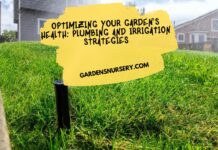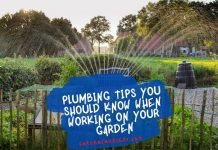5 Easy Water-Wise Tips for Your Garden

Creating a beautiful and sustainable garden doesn’t have to mean excessive water usage. With the growing concern for water conservation, it’s important to adopt water-wise practices that not only help preserve this precious resource but also promote a thriving garden.
In this article, we’ll explore five easy tips to make your garden more water-wise. From smart plant selection to efficient irrigation techniques, these strategies will help you create a sustainable and vibrant outdoor space. Let’s dive in!
Assessing Your Garden’s Water Needs
Understanding the water needs of your garden is essential for effective water management. Evaluate the soil type, sun exposure, and climate conditions specific to your area. Different plants have varying water requirements, so grouping them based on their needs can optimize water usage. Consider creating separate zones for high, moderate, and low-water-use plants to ensure efficient watering.
Smart Plant Selection
Choosing plants that are well-suited to your region’s climate and water availability is key to a water-wise garden. Opt for native or drought-tolerant plants, as they are naturally adapted to the local conditions and require less water once established.
Look for plant varieties labeled as “low-water” or “xeric,” which are specifically bred for water efficiency. These plants can still offer vibrant colors and textures while conserving water.
Mulching for Moisture Retention
Mulching is a simple yet effective technique for conserving moisture in the soil. Apply a layer of organic mulch, such as wood chips or straw, around your plants and garden beds. Mulch acts as a protective barrier, reducing water evaporation from the soil surface and preventing weed growth. It also helps regulate soil temperature, keeping the roots cool during the hot summer months. Remember to replenish the mulch layer periodically to maintain its effectiveness.
Implementing Efficient Irrigation
Efficient irrigation practices are essential for minimizing water waste. Consider using drip irrigation or soaker hoses instead of traditional sprinklers. These systems deliver water directly to the plant roots, minimizing evaporation and runoff.
Set timers to water your garden during the early morning or late evening when evaporation rates are lower. This allows plants to absorb water effectively and reduces the risk of fungal diseases.
Capturing Rainwater
Rainwater harvesting is a fantastic way to supplement your garden’s water needs. Install rain barrels or cisterns to collect and store rainwater from your roof. This water can then be used to irrigate your garden during dry periods. Place the rain barrels strategically near downspouts for easy collection. To prevent mosquito breeding, cover the barrels with mesh screens and ensure they are tightly sealed.
Conclusion
Creating a water-wise garden not only conserves water but also promotes sustainability and environmental stewardship. By implementing the five easy tips discussed in this article – assessing water needs, smart plant selection, mulching, efficient irrigation, and rainwater harvesting – you can significantly reduce water usage while maintaining a vibrant and healthy garden.
Remember to adapt these practices to suit your specific garden conditions and local climate. Embrace the opportunity to make a positive impact on the environment while enjoying the beauty and serenity of your water-wise garden.









